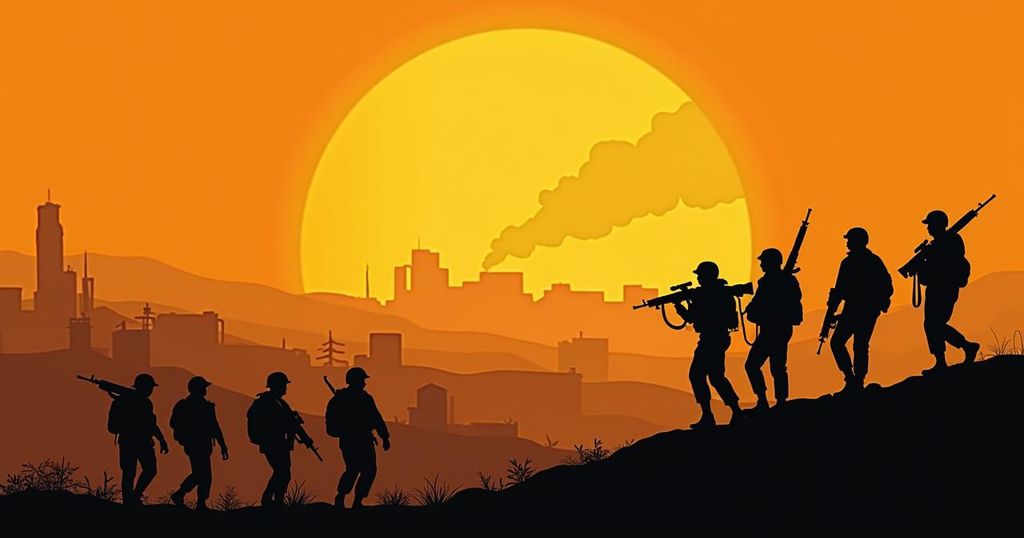Israeli military clashes with Hezbollah in Lebanon have intensified following a missile attack from Iran, which launched at least 180 missiles into Israel. The heightened military engagements raise fears of a wider conflict in the Middle East, as civilian casualties mount in Gaza amid continued Israeli operations. Diplomatically, tensions between Israel and the United Nations have escalated, indicating a complex interplay of warfare and international relations.
Israeli military forces are currently engaged in conflicts with Hezbollah in Lebanon following a significant missile attack from Iran, which involved at least 180 missiles targeting Israel. This escalation is perceived as part of a prolonged confrontation between Israel, Iran, and its regional allies, notably Hezbollah and Hamas, which has raised concerns about the possibility of a broader regional conflict. On the evening of the missile strike, air raid sirens warned Israeli citizens, prompting many to seek shelter as explosions resonated throughout urban areas, including Jerusalem and Tel Aviv. In the aftermath, the Israeli military reported interceptions of numerous missiles; however, some managed to reach Israeli territory, resulting in minor injuries. Iran celebrated the missile attack as retaliatory action against Israeli assaults that have impacted its allied forces in Lebanon and Gaza. In response to the intensified assaults from Iran, Israeli Prime Minister Benjamin Netanyahu declared that Iran would face repercussions. As ground and air operations persist, Israeli forces have undertaken limited incursions into southern Lebanon in pursuit of Hezbollah positions, marking an escalation of military engagement in the region. The Israeli military confirmed that it had lost a soldier during these clashes, underscoring the increased combat intensity along the northern border. Meanwhile, in Gaza, ongoing bombardments have resulted in high casualty rates among civilians, as medical officials report at least 51 fatalities in a single operation targeting militants within the densely populated region. This rise in violence has compelled Israel to evacuate residents from areas near the volatile border with Lebanon and has led to significant humanitarian concerns across the region. The conflict has deepened existing tensions between Israel and the international community. Israel’s Foreign Minister has declared UN Secretary-General António Guterres persona non grata, accusing him of failing to issue a strong condemnation of the Iranian offensive. The U.N. leader had previously called for a ceasefire amid the escalating violence. The mutual threats and ongoing military responses suggest an increasingly hostile climate that could potentially envelop more nations within the region if not addressed imminently.
The recent flare-up of hostilities in the Middle East has been punctuated by the intricate relationships and historical grievances that underlie the conflict between Israel, Iran, and their respective proxies such as Hezbollah and Hamas. Following multiple confrontations over the past years, the threat of escalated military operations looms large, as state and non-state actors engage in a cycle of attack and retaliation. Iran’s missile launch represents a significant escalation in the conflict and points toward its role as a key supporter of militant groups that contest Israel’s presence in the region. The situation is further complicated by the humanitarian crisis in Gaza, where the impact of military operations is profound and has drawn international scrutiny.
The situation in the Middle East is increasingly precarious, with ongoing military confrontations between Israel and Hezbollah, alongside Iranian missile strikes into Israel. The humanitarian toll in Gaza remains staggering, raising urgent calls for intervention and resolution. Unless diplomatic engagements are revitalized, this conflict could spiral into a broader regional war, impacting civilian populations and destabilizing the already volatile geopolitical landscape.
Original Source: apnews.com







